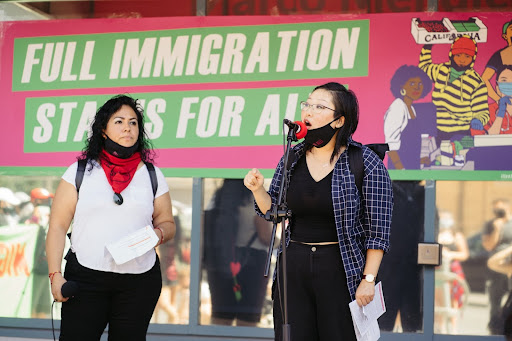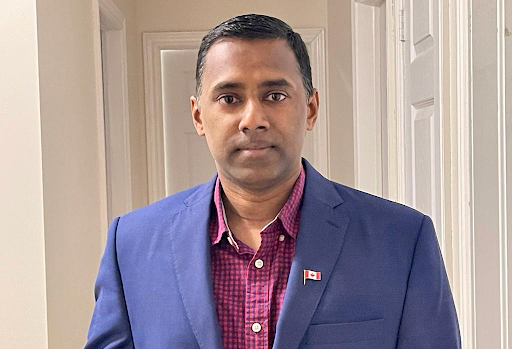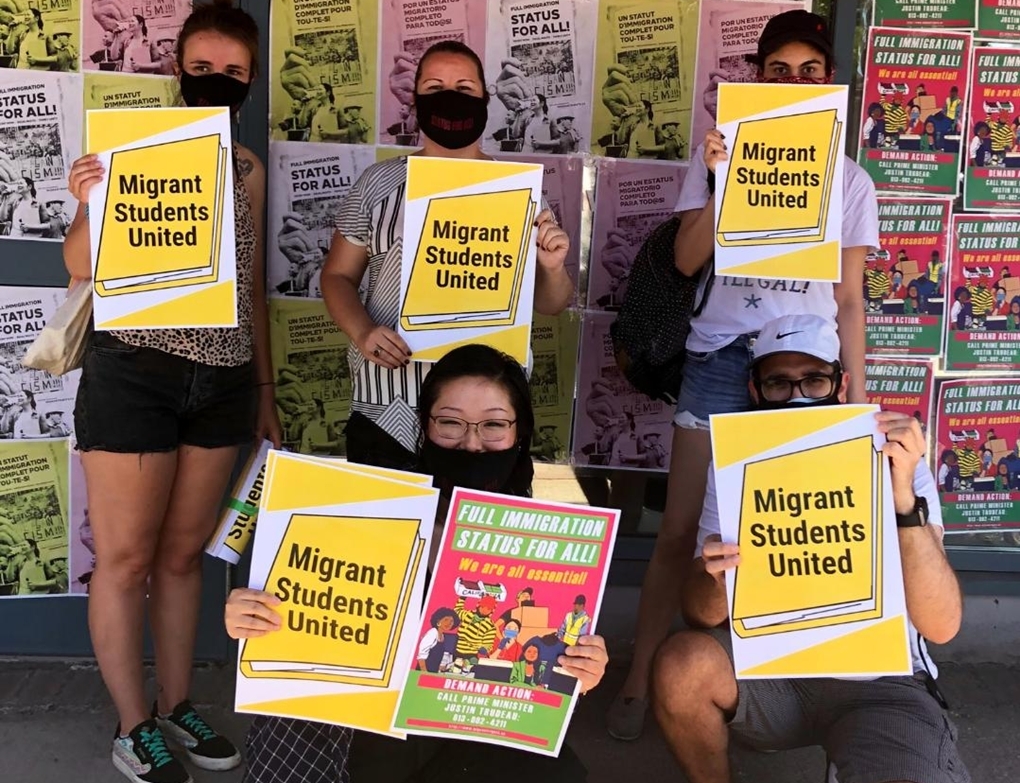Darryl Sequeira arrived in Saint John, New Brunswick, in 2004 to pursue engineering as part of Canada’s international students community. “Far from the heat and hustle of Dubai, I fell in love with the streams and rivers of Canada,” he says. Unfortunately, his joy was cut short after a car accident in 2005.
Despite doctors giving him slim chances of survival after falling into a coma, Sequeira woke up 15 days later as a quadriplegic. He says no one expected him to walk just a few months later. After three months of treatment in Saint John, his father flew him back to Dubai.
But he was “determined to come back.”
“I love nature in Canada. My mind was set on completing the course,” Sequeira told New Canadian Media.
At home, his recovery accelerated and he was able to return to university in 2006 — five years ahead of when his neurologist had advised he should return. “My return was unexpected and unbelievable for many,” he says.
After switching to sociology, Sequeira graduated in 2011 with a Graduate Leader award. However, unable to secure employment in his field of study, he reluctantly returned to Dubai once again.
“Back in Dubai, my body couldn’t cope with the extreme heat. I felt the longing for Canada both at a physical and emotional level,” he says.

By 2018, Sequeira was back in Ottawa — this time, for a graduate diploma in teaching English as a Second Language, which he was told would help keep him in Canada.
However, after completing the program, his applications for a work permit and another student permit were consecutively rejected in 2019, which technically made him an undocumented international student in Canada.
That same year, he applied for permanent residence on humanitarian grounds. Upon facing rejection, he went to court. After nine months, in February of this year, he got in-principal approval of his permanent residence application.
Though the wait has been long, Sequeira is relieved.
But the same can’t be said for Canada’s thousands of other undocumented international students.
The challenging road to PR
A student becomes undocumented when their non-renewable Post Graduate Work Permit (PGWP), which is granted for eight months to three years, expires and they aren’t able to get into the permanent residence pool.
Humanitarian grounds are the only way undocumented international students can apply for PR, but Canada doubled its rejection of permanent residence applications under humanitarian grounds, from 35 per cent in 2019 to 70 per cent in early 2021.
Sequeira’s lawyer, Jacqueline Bonisteel, said though his case is very unique, her law firm has been successful in securing permanent residence on humanitarian grounds for those who fit the criteria.
For Sequeira, it was the extreme heat of his home country and his medical condition that qualified him to apply under humanitarian grounds.
But just how many students can afford paid legal services?
“A lot of students are stuck in the middle. They not only don’t qualify for Ontario’s free legal aid or for permanent residence on humanitarian grounds, but also can’t afford a private lawyer,” Bonisteel explains.
Bonisteel says the road to permanent residence is challenging for many international students, though she wonders if the students are being misguided by unregulated consultants who often paint the picture of a student permit as an easy gateway to permanent residence.
“Do they know what the road to PR really looks like? It needs to be made clear to the students that it’s not an easy path to PR,” she says
“It’s getting harder than ever to qualify now. You need excellent English skills, and unless you fit a certain profile and you have the required prerequisites, you don’t get a PR.”
A matter of life and death
Affording legal aid is one thing, but for most international students, it’s their survival on the line. With the current 20-hour work limit they are subjected to, it makes it even harder for many students to be able to feed themselves. According to a Maclean’s report from last year, 40 per cent of post-secondary students in Canada are food insecure.
Sarom Rho, an organizer with Migrant Students United at the Migrant Workers Alliance for Change, says for students without support, it’s a matter of life and death.
“Often, they are cold and hungry. Some of them say that they survive because they eat at gurdwaras (Sikh temples) and mutual aid network places,” she told NCM.

For years, the international student community has been requesting the government to reconsider the 20-hour work-limit, which Rho says “pushes people to work in dangerous working conditions, under the table, and without access to basic rights.”
“Every day is a minefield of stress and exploitation for them,” says Rho. “We are aware of nine student suicides reported during the pandemic.”
Additionally, data shows most of the international students are from racialized communities, which means “their families have sacrificed all that they have to send their children to Canada with hopes of Canadian PR,” Rho says. This leaves students little to no choice at all.
At minimum, Rho adds, the government should consider renewing PGWPs. In 2021, the government made a one-time move of renewing PGWPs, which helped 52,000 international students get a second chance, but that temporary program has now expired.
Mounting pressure, extreme measures
With the government slashing the allotted express entry application intake numbers by 50 per cent, getting permanent residence has become even harder for international students.
“The inability to find jobs that fulfill the B-category requirement and the underground economy pushes them to extreme mental health situations,” said Praveen Varkey of Ontario Heroes, a multi-service volunteer-based not-for-profit.

According to him, “many international students suffer from mental health issues, and most of them don’t have anyone to turn to for support,” leading some to “substance abuse issues.”
“With COVID exacerbating their challenges, a few take the extreme step of ending their lives,” he adds.
Varkey shared the case of a student of South Asian descent who, despite support provided by Ontario Heroes, took his life when his travel plans to his home country got derailed due to the pandemic.
“It’s also taxing for volunteer-run organizations,” says Varkey, citing another instance where nearly eight volunteers had to care for an international student who showed suicidal tendencies after an initial rough patch in Canada.
“In this case, we could help save a life,” he says. “But finding the right help is not easy for them.”
The Canadian International Education Strategy 2019–2024 describes international students, particularly those who choose to remain in Canada, as contributing significantly to Canada’s long-term economic success and competitiveness.
That may be so, but given that the country relies on immigration nearly 100 per cent for both population growth and to fill its labour shortages, these accounts beg the question: is Canada being fair to its international students and doing all it can to support them?
Minu Mathew is a writer and communication consultant who has worked closely with brands like Philips, 3M and Microsoft. She has a book of poems titled ‘In the Garden of Rain’ published on Amazon. Minu has lived in India, Sweden, US and UK. She currently lives in Toronto, Canada with her husband and two children.





